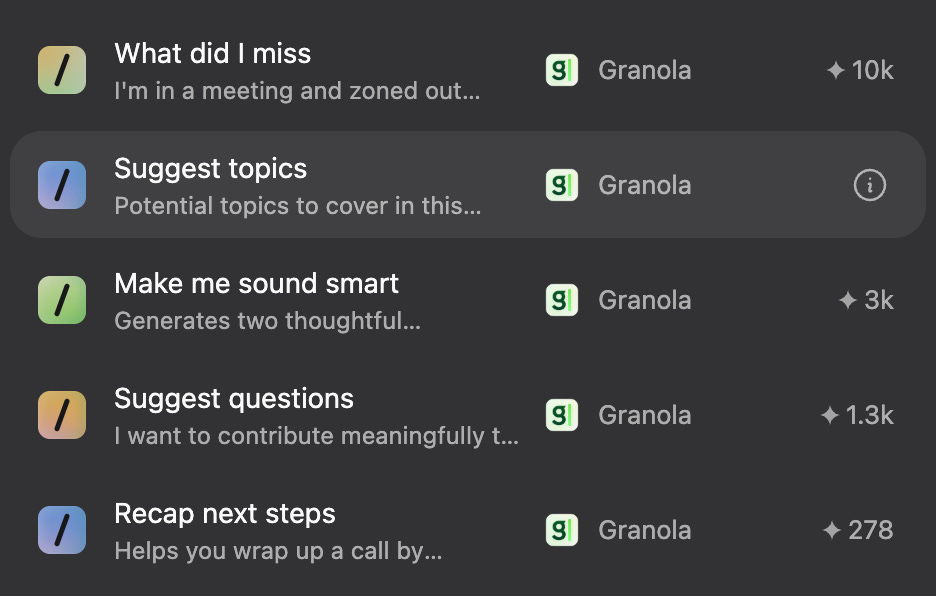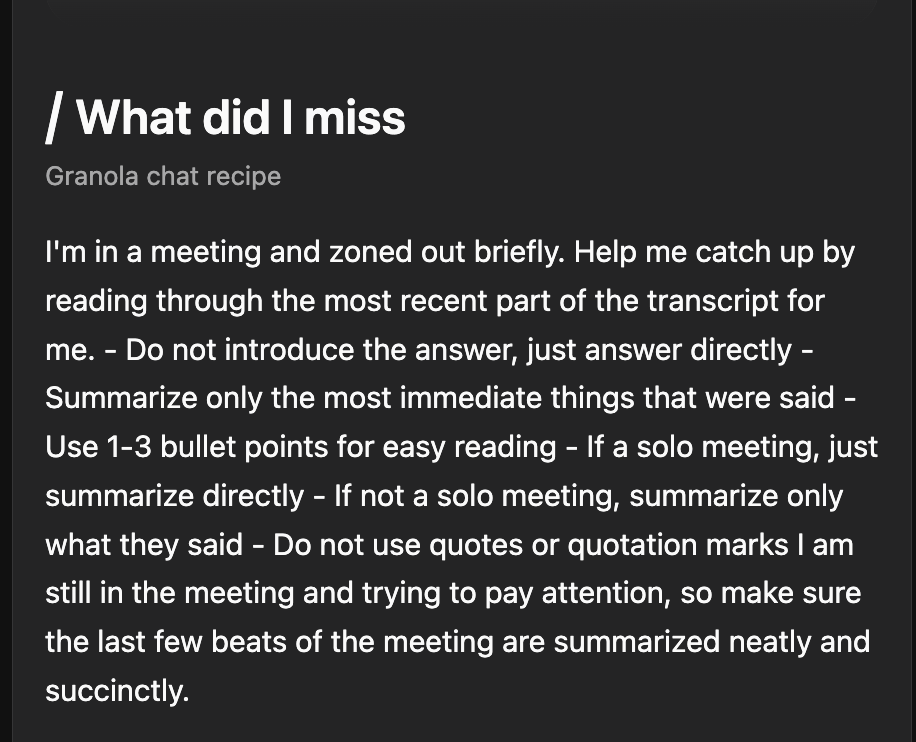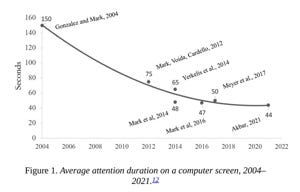You’re Not Paying Attention. AI Is.
When Even Our Attention Has a Middle Manager
Our inventions are wont to be pretty toys, which distract our attention from serious things. They are but improved means to an unimproved end, an end which it was already but too easy to arrive at; as railroads lead to Boston or New York. We are in great haste to construct a magnetic telegraph from Maine to Texas; but Maine and Texas, it may be, have nothing important to communicate.
—Henry David Thoreau
Distracted from distraction by distraction
Filled with fancies and empty of meaning
Tumid apathy with no concentration
—T.S. Eliot
Above: The Modern Mind.
Last week I tested out Granola.AI, an AI-powered meeting copilot that promises to “help you stay on top of things.”
It listens to your calls, summarizes what you missed, suggests questions to ask, and even crafts “thoughtful” comments to make you sound clever — a kind of cognitive Clippy for the Zoom era.
It was scarily effective.
My review initially echoed one of their own user testimonials: “The addiction is real - at this point I can’t imagine life without it. Effortlessly powerful.”
But, as time went on, something strange happened.
In meetings where Granola was on, I paid less attention, took fewer notes, and, candidly, felt less human.
It felt like I was developing a sort of AI-induced ADD.
After all, when something else is listening for you, why bother listening yourself?1
The Attention Economy Has a New Predator
Phones shortened our focus.
Notifications fractured it.
Now AI wants to automate it entirely.
Granola’s /what did I miss? command is the perfect metaphor for the modern mind: always online, rarely present.
We don’t want to pay attention; we want to be paid back in summaries.
At least the dopamine loop of social media still required participation.
AI is different: it’s the outsourcing of consciousness itself.
And it’s spreading fast, going from URL (Zoom and Google Meet) to IRL (Meta’s Ray-Ban glasses, Apple’s AirPods, and the “ambient companionship” promised by friend.com.
Soon, we won’t need to notice the world when it’s already being noticed for us.
The TL;DR-ification of Everything
As my friend Owen Willis wrote in The TL;DR-ification of Culture:
The incredible, unknowingly large amount of information available plus the declining quality of the content that is produced has contributed to a desire to skip the consumption of the content itself and instead try to draw out the main points as efficiently as possible.
Through technology we’ve replaced the act of learning with the accumulation of facts--this is the TLDR-ification of modern culture.
Consuming culture via TLDR-ification takes all of the serendipity and joy out of learning and leaves you with a list of bullet points that exist in a vacuum. In removing all of the friction of consumption, you miss out on all of the nuances of language and the ability to connect what you are consuming to your own experience. Every piece of knowledge consumed this way is an artifact.
We’ve trained ourselves to crave summaries over stories, snippets over sentences, takeaways over truth.
Everything’s a recap now. The richness of experience reduced to “action items” thanks to silicone semiconductors and cloud computing.
However, phones and cheap dopamine merely injured our attention.
If this keeps up, AI might finish it off.
We’ve built machines that not only distract us, but also attend for us.
The result isn’t hyperfocus and productivity, but hyper-fragmentation and pandemonium.
Neal Postman saw this coming back in 1985 with his masterful Amusing Ourselves to Death: “People will come to adore the technologies that undo their capacities to think.”
We were warned not about robots taking our jobs, but about algorithms atrophying our minds.
Like bankruptcy, this happens gradually and then all at once. Granola and other AI assistance don’t feel intrusive and nefarious, but helpful and innocuous. And that’s exactly how the undoing begins.
Per Warren Buffett,”The chains of habit are too light to be felt until they are too heavy to be broken.”
The Death of Deliberate Thought
All of these tools offer disengagement masked as efficiency.
They reward us for not paying attention, whispering: “It’s okay, I’ve got this.”
And like all well-meaning assistants, they eventually become the boss.
Our collective attention span has fallen below that of a goldfish.
But hey, at least the recap will be ready by the time we forget everything worth paying attention to.
Now, what was I saying?
Per my about page, White Noise is a work of experimentation. I view it as a sort of thinking aloud, a stress testing of my nascent ideas. Through it, I hope to sharpen my opinions against the whetstone of other people’s feedback, commentary, and input.
If you want to discuss any of the ideas or musings mentioned above or have any books, papers, or links that you think would be interesting to share on a future edition of White Noise, please reach out to me by replying to this email or following me on Twitter X.
With sincere gratitude,
Tom
It’s worth noting that every “AI meeting assistant” is also a recording assistant.
Those neatly summarized transcripts are stored on a server somewhere: searchable, subpoena-able, and permanent.
The surveillance state won’t need wiretaps when we’re volunteering the tapes ourselves. More about this here: AI on Trial






I did not quick scan this writing. I am not going to allow my creativity be shifted by AI or I phone culture. I was fortunate to grow up with single camera no edits Mister Roger’s rather than the rapid fire cutting multi camera views of Sesame Street . I feel blessed that I can take a long dive in writing that interests me despite a pressurized schedule. Thanks for the heads up.
Excellent. And disturbing.